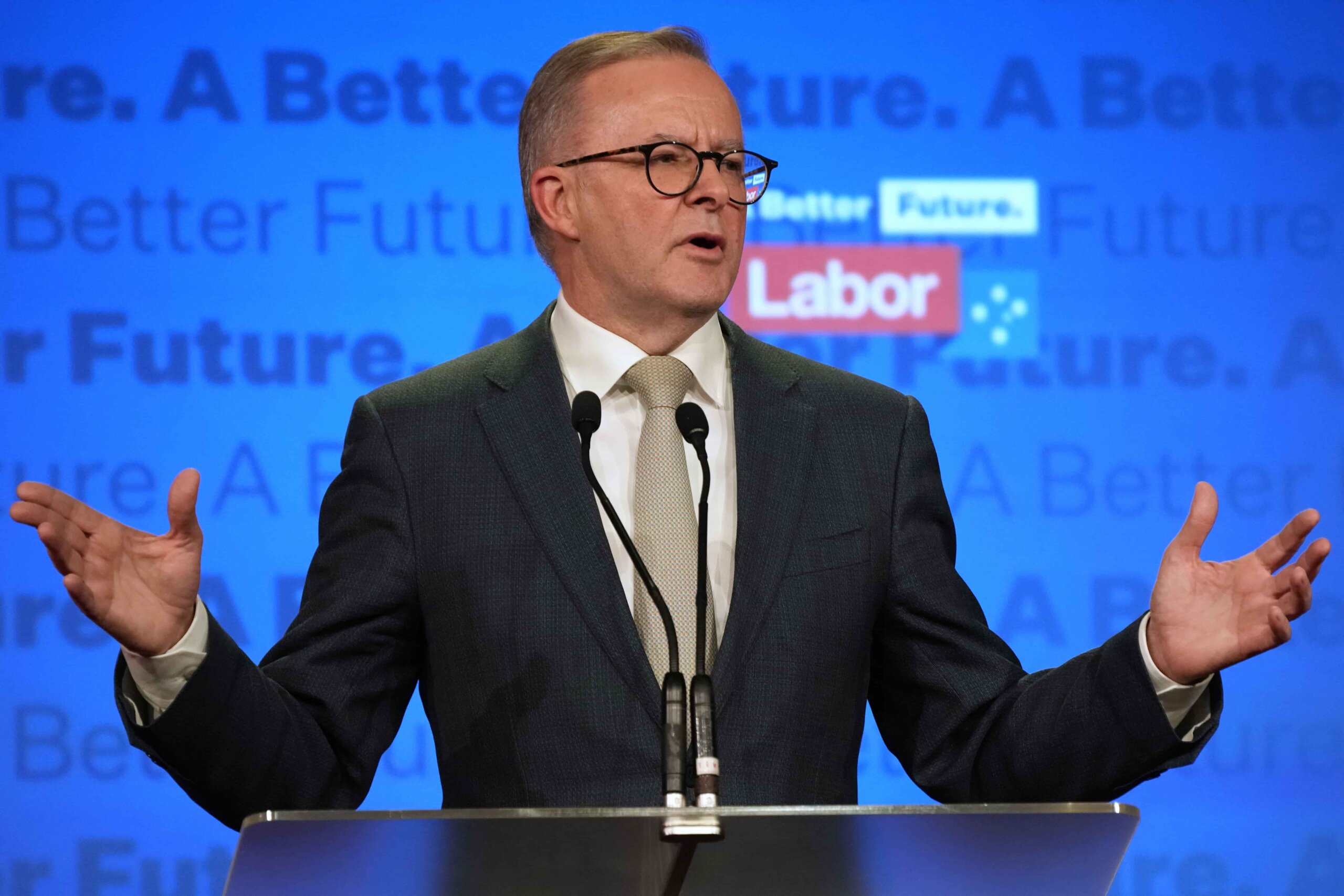Australian prime minister Scott Morrison was voted out of office last week in what some have hailed as a win for the LGBTQ+ community.
Morrison conceded defeat on May 21 after losing the federal election to Labor party leader Anthony Albanese, who represents Australia’s centre-left opposition party. With 74 percent of votes counted in the race, Albanese leads Morrison 52.2 percent to 47.8 percent. A third candidate, Adam Bandt of the progressive Greens party, trailed with just 11.9 percent.
Albanese said in his victory speech on Saturday night that Australians voted for change.
“It says a lot about our great country that a son of a single mom who was a disability pensioner, who grew up in public housing down the road in Camperdown, can stand before you tonight as Australia’s prime minister,” he said in comments reported by the Associated Press.
The election marks Labor’s first electoral win since 2007, putting an end to the Liberal party’s decade-long rule. Morrison has served as prime minister since 2018.
As votes are still being counted, it’s unclear whether the Labor party won enough votes to wield a majority government—meaning that the party would be able to lead parliament without forming a power-sharing agreement with the Greens.
“I believe it’s very important that this country has certainty. I think it’s very important that this country can move forward,” Morrison said in his concession speech on Saturday.
“And particularly over the course of this week, with the important meetings that are being held, I think it’s very important that there’s a clear understanding about the government of this country,” he added.
Morrison’s election campaign—as well as his entire tenure as prime minister— was characterized by attacks on the LGBTQ+ community. The Liberal leader has been a staunch supporter of the Religious Discrimination Bill, a piece of legislation proposed in the wake of Australia’s 2018 vote in favour of same-sex marriage that would strengthen protections for people of faith in areas like employment and hiring.
LGBTQ+ advocacy groups warned the bill’s passage would be a “licence to discriminate,” leading to the exclusion of trans students and teachers from faith-based schools. In a 2019 report, with Marriage Equality Australia said the proposed law privileges “the religious views of some over the fundamental rights of others.”
In introducing the bill last November, Morrison said he was doing so to fight against “cancel culture,” and protect people’s “statements of belief.”
Just months before the election, Morrison also praised Australia’s controversial Save Women’s Sports bill in February, lauding it as “terrific.” If signed into law, the nationwide legislation would have allowed sporting associations to bar trans women and girls from participating in women’s and girls’ sports. It also protects organizations from discrimination lawsuits.
Adding to the long list of controversies, Morrison defended Katherine Deves, a Liberal candidate in the electoral district of Warringah, in April after she described trans kids as “surgically mutilated and sterilized” in a since-deleted tweet. Deves was also defeated in the parliamentary elections.
Owing to Morrison’s record, the LGBTQ+ rights group Just.Equal celebrated the prime minister’s defeat, but said in a statement that the true winners of the election were “equality, inclusion and acceptance.”
“Like many Australians, we are relieved the discriminatory Religious Discrimination Bill is now off the table,” Sally Goldner, a spokesperson for Just.Equal, said in a statement cited by the Australian LGBTQ+ publication OutinPerth.
With Morrison out of the prime minister’s seat, the Religious Discrimination Bill seems to be finally dead. The Labour party’s campaign promises included the introduction of a new religious discrimination bill that will strengthen protection for LGBTQ+ students and take away the ability of schools to discriminate against queer and trans youth.
Rodney Croome, a fellow spokesperson for Just.Equal, said the organization hoped to see Labour follow through on protecting “LGBTIQA+ students from discrimination by faith-based schools.”
“We will also be pressing Labor to protect young people with variations of sex characteristics from unnecessary, non-consenting medical interventions, to provide more resources to improve the health and well-being of LGBTIQA+ people, to ensure Medicare covers the costs of gender affirmation, and to remove the current gay, bisexual and transgender blood bans,” Croome said in a statement.


 Why you can trust Xtra
Why you can trust Xtra


